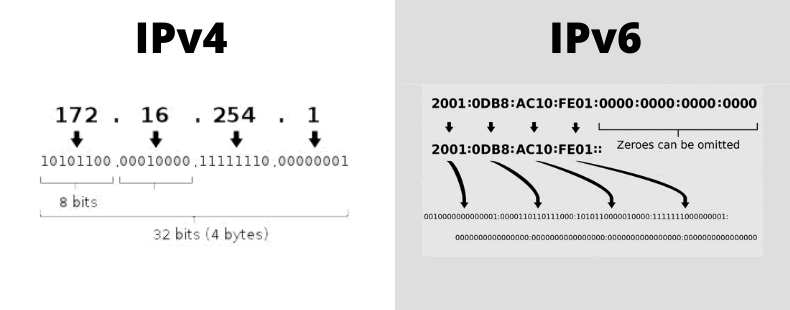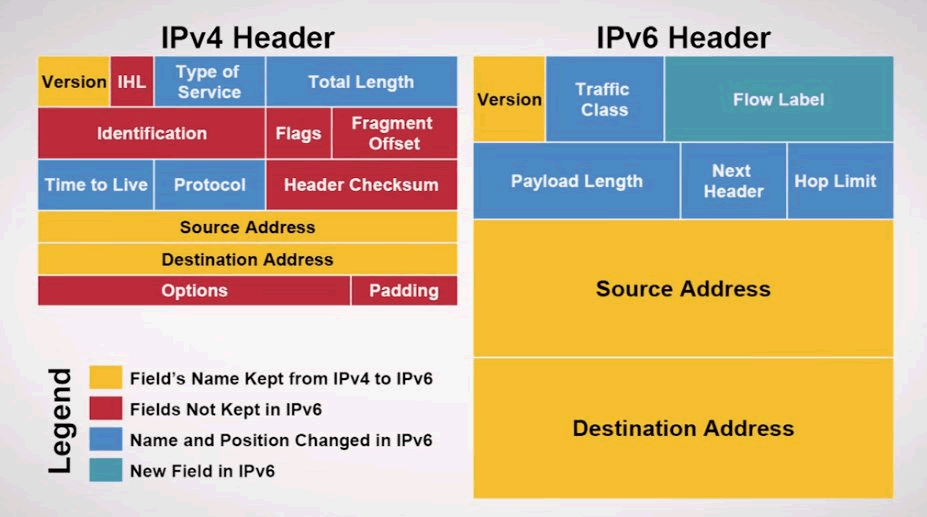*This website contains affiliate links. If you click on these and make a purchase, we will receive a small percentage of the sale.
Do you want to buy IPv6 proxy IPs? Or are your dedicated IPv4 performing poorly?
If you’re looking for a change, here’s everything there is to know about IPv6 proxies, what providers sell them, and if you should buy them.
What is an IPv6 proxy… or better said IPv6 IP?
Many users have mistaken IPv6 for a type of proxy. However, this is not a proxy type, such as HTTP or SOCKS ones. Instead, IPv6 is an IP address format which allows for more numeric combinations, which leads to more IP addresses available to allocate to devices connected to the Internet.
They behave in the same way as regular IPv4 IPs. In principle, IPs are used in the same way as building addresses – to identify a device (endpoint) connected to the Internet.
So, there’s nothing fancy about IPv6 proxies. They are not the perfect, bypass-anything solution. Actually, because of the lack of back-compatibility and ISPs’ reluctancy to invest in IPv6 infrastructure, sometimes, using only IPv6 can have drawbacks. Such as not being able to connect to certain websites hosted on servers connected to the Internet through an IPv4-only Internet Service Provider’s infrastructure. (however, this is expected to change real soon).
Where to buy IPv6 proxy IPs
These are the top proxy providers offering IPv6 proxies.
Differences between IPv4 and IPv6 IPs
While the IPv4 is used since the late 1970s with minor improvements, IPv6 was designed for the modern, interconnected world (a world that didn’t exist in the 1970s – who would’ve thought back then that we will have fridges and washing machines connected to the Internet).
Where to buy IPv6 proxy IPs
These are the top proxy providers offering IPv6 proxies.
These are the most important differences between IPv4 and IPv6 IPs. Please note that these are the general differences between these two IP versions. I’m not talking about proxies here
Address type, length, maximum possible addresses
The first thing that you’ll notice when looking at these two types of IPs is the address length:
- IPv4 – 32bit address, eg: 172.217.10.78
- IPv6 – 128bit address, eg: 0000:0000:0000:0000:0000:ffff:acd9:0a4e

By just looking at it, we can see the first major benefit of IPv6 IPs: more numeric combinations, i.e., more IP addresses.
- IPv4 – max 4 billion address combinations (last unused IPv4 IPs were allocated by IANA in early 2011).
- IPv6 – max (almost infinite) trillions of combinations with a total of 10(15) unique addresses.
Lower complexity
Another difference is the reduced complexity of IPv6 IPs, which leads to lower overheads and a more optimize transfer protocol.
Here are the headers of an IPv4 vs an IPv6 transfer.

As you can see, IPv6 is a significant improvement over IPv4 IPs. However, there is still a long way to go before the world stops using IPv4 completely. Actually, it might or might not happen at all, and we could use them simultaneously. This is not something certain, and we have yet to see how things develop.
3 Key Features of IPv6 Proxies
Let’s get back to proxies. If you want to buy IPv6 proxies exclusively, consider the following three things:
- Price – IPv6 proxies are cheaper because there are trillion of them and there isn’t a high demand for them as for regular proxies.
- Location – location matters even for IPv6 IPs, so look for proxies located in your country/state/city of choice.
- Unlimited Bandwidth – most IPv6 are datacenter proxies, so you should look only for proxies with unlimited bandwidth.
IPv6 benefits
The primary benefit for which you should buy IPv6 proxies is the price. They are considerably cheaper than regular IPv4 proxies.
However, as mentioned above, there are still drawbacks in using IPv6 proxies, such as the lack of backward compatibility (the website on which you plan on using them might not recognize IPv6 IPs because of its ISP).
How to use IPv6 proxy IPs
Use them as you like. But first: test them.
In theory, you could use IPv6 proxies for any task you want, such as social media management, sneaker coping, web scraping, and data mining.
However, if you plan on getting them, test them on the platform (website) you plan on using them. Almost all services offer either a trial or a money-back guarantee. So, make the most of it.
Buy IPv6 proxies, let’s say for Instagram, test them with your account as it would’ve been in production (full management settings) and see if they connect you without any issues.
If you can use these proxies, then consider keeping them, or buying more. However, if they do not work and you bought them, ask your provider to either change your IPv6 proxies with regular IPv4 proxies or ask for a refund.
FAQ – Frequently Asked Questions About IPv6 Proxy IPs
How long will IPv6 IPs last for?
IANA and other organizations managed to keep the Internet going with IPv4 IPs exhausted in 2011. So, I believe IPv6 can be used forever if no new protocols are developed.
Can we think of IPv6 IP project as a failure?
I wouldn’t consider it a failure for three reasons:
- The Internet ran out of IPv4 IPs, so IPv6 implementation is necessary and a matter of time.
- IPv6 was experimental since its inception, and a lot of testing went into it to improve and adapt it to the world of interconnected devices.
- Nobody knows what will happen, and predicting a technology adoption pattern is quite a difficult task.
Should I buy shared or dedicated IPv6 proxies?
Given that IPv6 proxies are quite cheap, you should look into buying dedicated IPv6 proxies. Regardless if you want to buy HTTP or SOCKS5 IPv6 IPs, there’s no point in sharing the proxy server’s resources with other users.




